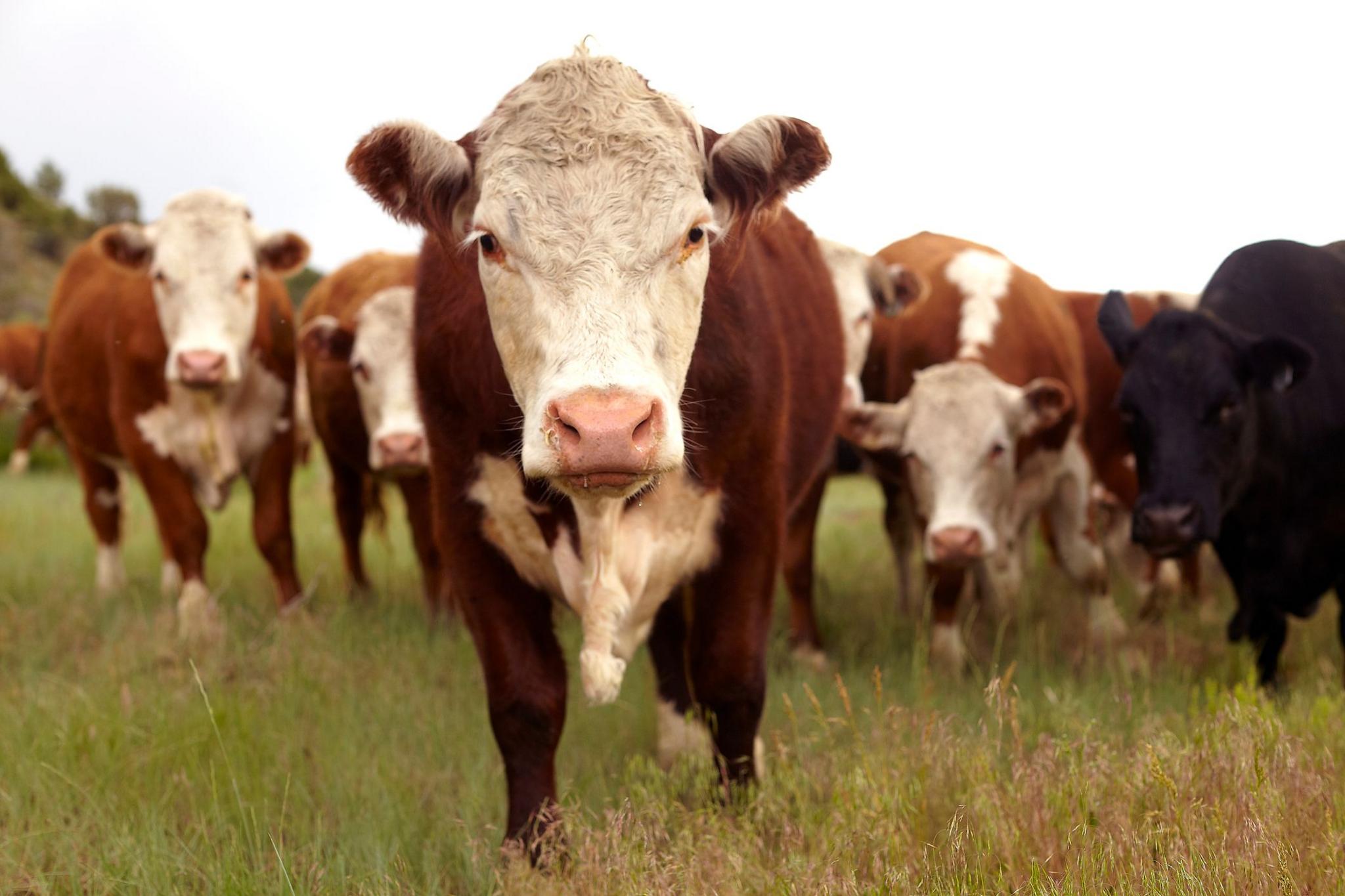Irish beef exports to China suspended after BSE case

The Chinese market had reopened to Irish beef exports in January
At a glance
Irish beef exports to China are suspended after a case of atypical BSE was detected in a cow
The case was confirmed on Friday after tests were carried out on a dead 10-year-old cow that had been delivered for destruction
The Chinese market had resumed to Irish beef exports in January 2023, following a previous case of BSE in 2020
The BSE case, commonly known as mad cow disease, is atypical, meaning it can occur naturally as opposed to traditionally BSE caused by contaminated feed
- Published
Beef exports from the Republic of Ireland to China have been suspended after a case of atypical BSE, commonly known as mad cow disease, was detected in a cow.
Irish broadcaster RTÉ reports that the case was confirmed on Friday after tests were carried out by Irish Department of Agriculture vets on a dead 10-year-old cow that had been delivered for destruction.
The Chinese market had reopened to Irish beef exports in January, following a three-year closure due to a previous BSE case discovered in 2020.
Under a protocol agreed with China, beef exports have to be suspended when any BSE case is discovered.
It is understood any timetable for the resumption of beef exports is up to the Chinese authorities.
Tánaiste (Irish Deputy Prime Minister) Micheál Martin said on Wednesday he is hopeful Chinese authorities will reach a decision on the resumption of beef exports "within a matter of months".
Mr Martin is currently on a four-day visit to China and said he was not concerned about damage to Ireland's reputation.
Micheál Martin said he believed the impact of the atypical case would be limited
He added that the voluntary suspension of the trade "is part of a protocol that Ireland and China entered into to facilitate the entry of beef into the Chinese market".
"It is disappointing that this happened, but I think it's a vindication of our controls," Mr Martin said.
Commenting on the possibility of financial assistance for farmers affected by the development, Mr Martin said that Agriculture Minister Charlie McConalogue was dealing with the matter.
He said he believed the impact of the atypical case would be "quite limited" in terms of farmers trading with China, noting that Ireland exports beef to about 70 countries.
He added that he had highlighted the importance of beef and food exports to his Chinese counterparts.
RT├ë reports that shipments of Irish beef to China resumed in April, but that the current level of exports had been low, amounting to just over Ôé¼16m (┬ú13.9m) by the end of August.
'Setback' for farmers
BSE is an acronym for Bovine Spongiform Encephalopathy.
Atypical BSE can occur spontaneously in older cattle and occurs naturally, unlike traditional BSE that is caused by giving contaminated feed to bovines. It is not contagious.
The Irish Department of Agriculture said there was no danger at any stage of this animal entering the human food chain and no public health risk.
Irish Farmers' Association (IFA) national livestock chairman Brendan Golden said the news was disappointing and "a setback that we could do without".
He said the market needed to reopen as quickly as possible.
Mr McConalogue said atypical BSE happens sporadically and that it was testament to Ireland's high testing standards that it was detected.
He said the cow was not destined for the Chinese market and was identified as part of standard testing procedures.
He added that the Irish government would work with the Chinese government to have the beef export market "reopened as promptly as possible".